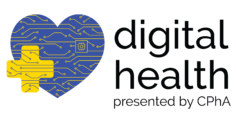Digital Health Corner Editor: Parisa Vatanka, PharmD, CTTS
 When I accepted a new and exciting academic pharmacy fellowship at the University of Southern California (USC) School of Pharmacy, I was informed that my major objective for the year was incorporating digital health education in the pharmacy curriculum. As someone with minimal experience in this field, my natural first step was to Google “what is digital health?” This one simple question opened a whole new world of possibilities. I quickly realized that digital health is a broad and expansive field that encompasses many different realms. It includes elements such as high-level informatics and automated medication dispensing systems to telehealth and connected sensor products for continuous glucose monitoring (CGM) that I had used in my post-graduate residency training program. It was a lot to say the least.
When I accepted a new and exciting academic pharmacy fellowship at the University of Southern California (USC) School of Pharmacy, I was informed that my major objective for the year was incorporating digital health education in the pharmacy curriculum. As someone with minimal experience in this field, my natural first step was to Google “what is digital health?” This one simple question opened a whole new world of possibilities. I quickly realized that digital health is a broad and expansive field that encompasses many different realms. It includes elements such as high-level informatics and automated medication dispensing systems to telehealth and connected sensor products for continuous glucose monitoring (CGM) that I had used in my post-graduate residency training program. It was a lot to say the least.
I took a step back and asked myself, “how can I, a digital health beginner, take this huge topic and narrow it down to something our student pharmacists will connect with and find interesting and relevant?” Since my training up until this point has been clinical in nature, I decided to focus on how to apply digital health tools in augmenting medication optimization in patient-centered care.
A natural place to integrate this approach was in USC’s Case Conference series where students meet in small groups to assess and analyze patient cases for a range of disease states and patient populations. In this series, I have been collaborating with pharmacy residents who create patient cases to incorporate discussion points regarding how digital health tools may be applied to enhance our approach to care. So far, we have exposed students to electronic prescribing order sets, telehealth, digital tools for medication adherence, sensor-enabled medications, connected sensor products, and digital therapeutics. I also created a case where the students developed a proposal for a clinical pharmacy service that utilizes a range of digital health technologies to improve population health outcomes. It has been fascinating to see how the students have quickly embraced the value of integrating digital health tools. They have even expressed net new ideas on features they would like to see in current products – a signal that pharmacists as domain experts informing product design can be of great value.
My endeavors with digital health in our pharmacy curriculum are far from over. I was recently asked to speak on a panel of pharmacy educators at the American Association of Colleges of Pharmacy (AACP) Digital Health Institute. The ideas that were shared at the Institute coupled with the early success of the Case Conference series has sparked an even brighter fire in me to innovate in this space. I now have a plethora of ideas on how digital health can be taught throughout pharmacy education.
I strongly believe digital health is something that all student pharmacists should be competent in as digital health is making its way into all areas of health care. By equipping the future generation of pharmacists with the knowledge and skills needed to successfully apply technology in their practice, we will help to further propel pharmacy practice to infinity and beyond.
Julie Darnell, PharmD, BCACP, AAHIVP, is currently an Academic Pharmacy Fellow at the USC School of Pharmacy. Her fellowship has a strong focus on digital health and how to best integrate digital health into the pharmacy curriculum. She obtained her PharmD from the University of Colorado, and moved back to her home city of San Diego for a PGY1 at UCSD focused in ambulatory care. She began her journey with USC as an Ambulatory Care PGY2 at the VA Greater Los Angeles, where she completed the USC residency teaching certificate program. She loved teaching and USC so much she decided to stay on another year to learn all about academia, so she will feel prepared to start a faculty position upon completion of her training. Dr. Darnell’s clinical interests include care of older adults, polypharmacy and deprescribing, and health needs of the LGBTQ+ community. Her academic interests include student and resident wellness, using games in teaching, and digital health education.

